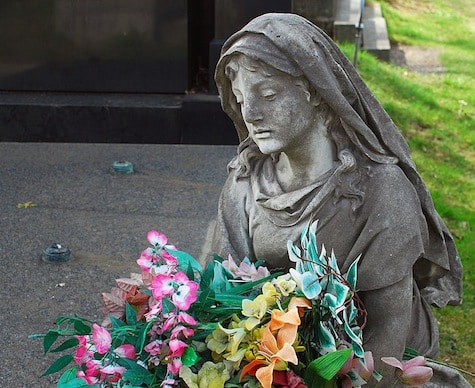 Culture & Ethics
Culture & Ethics
 Evolution
Evolution
 Faith & Science
Faith & Science
Do Darwinists Really Lack Reading Comprehension?


Sometimes I wonder. Josh Youngkin reflects on their seeming inability to read and comprehend the text of responsible academic-freedom laws like the Louisiana Science Education Act. Well, how about reading a brief, simple post here at ENV, like this one I wrote last week: “If Darwinists Won the Debate, What Would They Say to Impart Comfort, Meaning to Those in Grief?” Steven Mahone of Colorado Citizens for Science, writing at Panda’s Thumb, fails the test.
I commented that in the face of tragedy, great adversity — or I should have added other profound events in life, like birth or marriage — Darwinism and its Janus face, scientific materialism, rob us of the ability to say anything truly meaningful in response. Trying to console a mourner, what do you say? “Well, you’ll be dead soon enough yourself anyway, so quit worrying.”
Predictably, Mahone twists my question beyond recognition. He asks “Do ‘Darwinists’ Really Lack Compassion?” He goes on, “Klinghoffer is convinced that while those cold, heartless, and impersonal men and women of material science might be able to cure the disease, afterwards you’d better not expect anything more than a firm handshake.”
Mahone’s comments were posted by PT regular Matt Young who adds that I “incorrectly conflate [Darwinism] with callousness, indifference, and atheism.”
But of course I never said materialism or Darwinism robs us of the ability to feel deep compassion. Of course not — that seems be wired into us, which is a problem in itself for orthodox evolutionary theory. It’s a feature of our design. I said that when the time comes to think or speak in way that sets an event like the Boston Marathon bombing in a meaningful context, the triumph of Darwinian materialism would leave us speechless.
A hint for the challenged reader: I don’t mean literally voiceless. I mean unable, in all likelihood, to say anything that anyone would recognize as meaningful. Genuinely emotional? Sure. Genuinely meaningful? No. Mahone in his post immediately goes on to demonstrate that I’m right about that. He delivers this strings of platitudes:
[S]hould there be no designer and no ultimate explanation beyond what we can grasp and appreciate in the here and now, then I would not be surprised one bit if Klinghoffer still found a way to get his children to school on time, and I doubt that he would be any less concerned for their well-being and happiness than he is right now.
Sure I’d go on driving carpool and loving my kids. So what? More:
Like it or not, that’s the best answer to the question posed in Klinghoffer’s column: Anyone who cares is someone who can comfort. Anyone who has ever been hurt is someone who can offer insight into what it takes to deal with grief. And anyone who has ever contemplated what is important in this life has already found meaning and purpose.
How is that an answer? Speaking over the coffin, our Darwinian social worker essentially says: “Hey, I feel your pain. I’ve been there too.” And what if you haven’t been there too?
Sorry, however heartfelt, that’s not going to console anyone. It won’t satisfy that most distinctively human craving for true meaning — see Viktor Frankl — which is itself, come to think of it, a Darwinian enigma. How do you explain that ceaseless hunger that never served any evolutionarily adaptive need?
A reader in Norway, Helge, writes to chastise me for the same article and, like Mahone, inadvertently confirms my observation. Referring to her country’s mourning for the victims of Anders Behring Breivik (go back and read John West’s posts on that, here and here), she says:
Of course, most of the victims were eventually buried with clergymen going through the motions — but in Scandinavia, the overtly religious stuff is mostly considered a special interest phenomenon to be kept in the private sphere (if you are into that subculture). As a society, we seemed quite able to mourn the dead, and honor their memory, without loads of mumbo-jumbo. In fact, many visiting reporters commented on the great maturity and dignity our society displayed that tragic summer two years ago.
So even in hyper-secular Norway, in the context of a wrenching event, most feel the need to hear from a clergyman. Why am I not surprised?
Image: Wikicommons.
